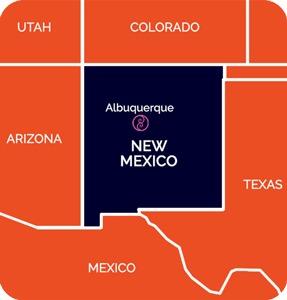
The Battle for Reproductive Rights in the American Southwest
The South and Midwest have often been the epicenter of the fight for reproductive rights in the United States. However, the states of Nevada and Arizona, which are projected to be swing states in the 2024 election, could be the newest battlegrounds in the fight for bodily autonomy.
Nevada’s Fight for Permanent Protections
In November, Nevada will vote on a constitutional amendment that enshrines abortion rights until fetal viability, with exceptions for lifesaving treatment. This initiative was approved for the ballot after 127,865 signatures were verified – more than the 102,362 required. Though abortion is already legal in the state, advocates argue that permanent protections are required to counter attacks on reproductive healthcare in the United States.
According to a poll by Noble Predictive Insights, 49% of registered voters in Nevada believe that abortion should be legal only under certain circumstances, while 45% say it should be legal under any circumstance. Advocates for reproductive rights believe that mobilization efforts targeting young people and voters of color will be necessary to sway the vote in their favor. Furthermore, to amend the constitution, voters must approve the ballot question in two consecutive elections, meaning abortion will be up for another vote in Nevada in 2026.
Arizona’s Ambitious Initiative
Arizona is currently subject to a 15-week restriction on abortions, with exceptions only available for life-threatening situations, leaving doctors concerned and patients seeking care elsewhere. However, the Arizona for Abortion Access campaign has filed 823,685 signatures, more than double the required 383,923, to add constitutional protections for reproductive rights to the ballot for the next election. Arizona for Abortion Access is now aiming to reach communities across the state, particularly Indigenous and Latino voters, who make up a quarter of Arizona voters.
The campaign faces opposition, with a Republican-led local legislative committee attempting to include language in voter publicity pamphlets referring to a fetus as an “unborn human being.” Such language is classified as “fetal personhood” by abortion advocates and health experts. As a result, Arizona for Abortion Access has filed a lawsuit against the committee.
An in-Depth Examination of Reproductive Rights in the Southwest
The Southwest encompasses a diverse range of urban and rural areas, with unique demographic compositions, including significant Latino, Indigenous, and immigrant populations. Examining abortion access here provides insights into how these diverse communities are affected by reproductive rights policies.
Understanding how abortion policies play out in the Southwest can offer a broader perspective on national trends. The Southwest sits as a checkerboard of abortion access, with Colorado and New Mexico acting as abortion travel destinations for the South and bordering states with bans. In response to the recent Supreme Court decision in Dobbs v. Jackson Women’s Health Organization, New Mexico performed 15,070 more abortions from 2020 to 2023, an increase of 256%, according to Guttmacher.
Wait times at clinics in Colorado also reached up to 28 days, and clinics in both Nevada and New Mexico experienced extended wait times due to the influx of patients. However, these states have expanded capacity by hiring more staff and utilizing telehealth to offer better access to reproductive healthcare.
The Intersectionality of Reproductive Justice
The Southwest is home to many marginalized communities that may face additional hurdles in accessing reproductive healthcare. Focusing on this region allows for an in-depth examination of how policies disproportionately impact these groups and the intersectionality of reproductive justice.
According to Pew Research Center, in 2019 half of the U.S. Latino population lived in the Southwest border states alone. Incorporating communities of color into reproductive rights advocacy efforts is essential to ensuring that all people have access to the same rights and options.
Chris Love, Planned Parenthood Advocates of Arizona senior advisor and Arizona for Abortion Access spokesperson, says that the initiative has garnered support from voters of all parties. Love believes that people, regardless of their political affiliation, resonate with the message that pregnant patients should have the freedom to make personal healthcare decisions without political interference.
Conclusion
The Southwest of the United States is a crucial region in the ongoing fight for reproductive rights. With two swing states projected to vote on abortion rights in the 2024 election, the fight for permanent protections is ongoing. Examining the intersectionality of reproductive justice and marginalized communities provides a broader perspective on national trends. Mobilizing voters of all parties to come out and take issue with reproductive healthcare barriers could make all the difference in ensuring that everyone who wants an abortion can get one.
Originally Post From https://www.reckon.news/family/2024/07/abortion-access-in-the-southwest-how-arizona-and-nevada-can-shape-the-future.html

